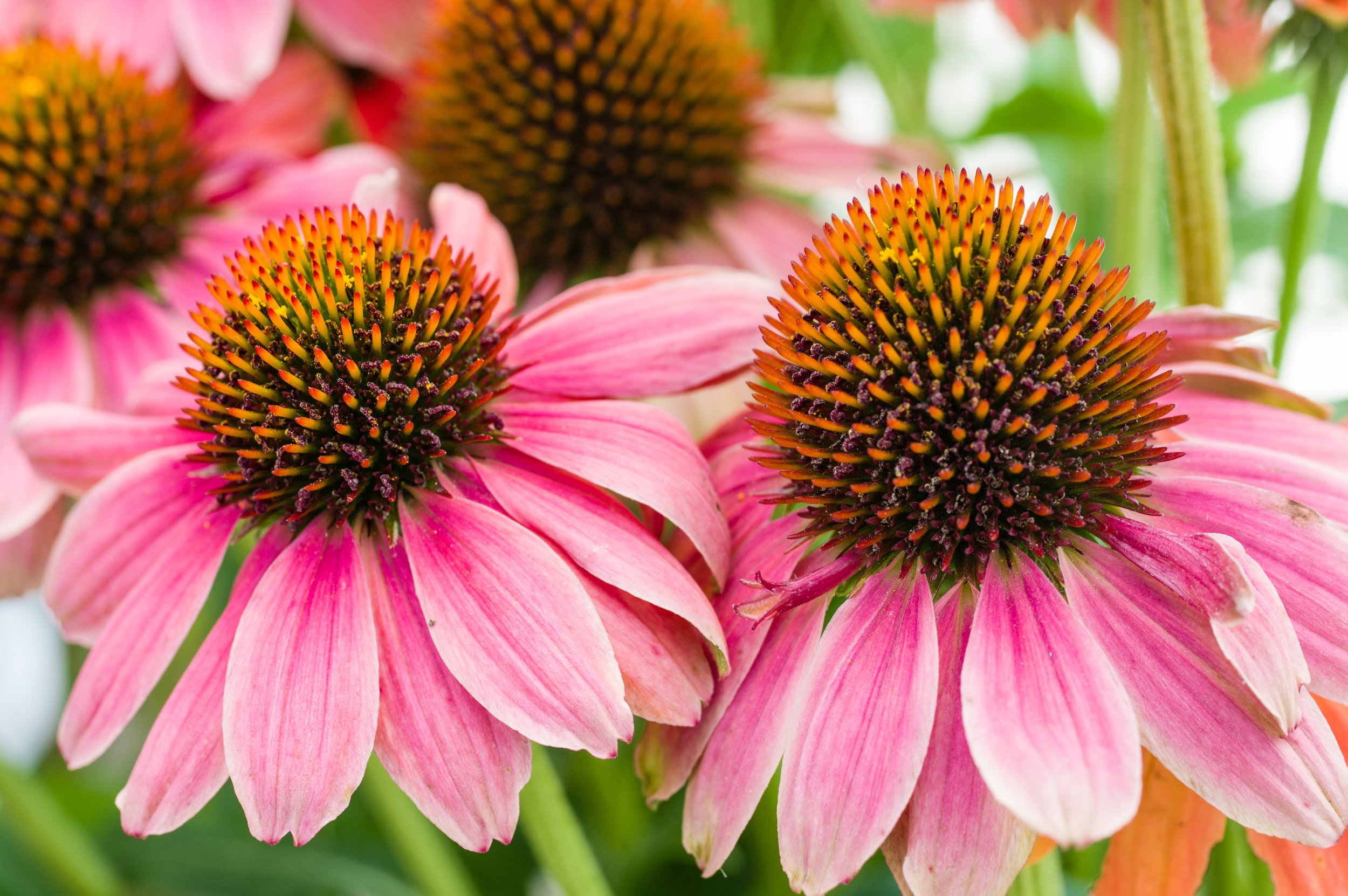Herbal reflection: Echinacea purpurea
It is no secret that I love making tea blends for a wide variety of taste profiles and healing medicinal uses.
However, there is also value in spending time reflecting on the impact that imbibing a single herb has upon one’s mind and body. This process allows you to become very familiar with the way each particular herb impacts and influences your physical self, mental self, and all of your senses.
It is for this reason that one of the herbalism schools through which I study, the Chestnut School of Herbal Medicine, has all of its students prepare and mindfully consume “simples,” or herbal preparations made from a single herb, and journal about what they notice in regards to each simple they use.
Of course, you don’t need to be enrolled in an herbalism school to benefit from this exercise! Not only does it open you to being very present with the herb’s impact on you, but is also gifts you with a chance to be quiet, still, and mindful, which is something all too many people don’t get enough of!
I’m going to intermittently share some of my reflections on these herbal simples… and I also encourage you to explore simples, too! Do you have a favorite tea blend? Check out the ingredients and see if you can grow them or get them from a reputable seller, and then brew a cup of tea using just one of those ingredients.
How do you feel before taking your first sip? What does it smell like? How does it feel when you drink it? Do you feel any different after having the cup of tea than you did before?
I chose Echinacea yesterday because I have been fighting off a sinus infection; it is particularly well suited to use when actively symptomatic with a cold, as it has anti-inflammatory, immunostimulant, lymphagogue, and antimicrobial actions, and was thus well suited to my symptoms.
A side note: People with autoimmune conditions should be cautious when using herbs with immunostimulant actions, as their immune systems are already working overtime. The risks related to Echinacea’s immunostimulant action is somewhat mitigated by its anti-inflammatory and alterative actions, but there is still a risk that it could bring on a flare-up, and thus should not be taken by people with auto-immune conditions unless under the supervision of a doctor and/or experienced herbalist. It should also not be taken long-term as a cold and flu preventative by anyone, regardless of whether or not they have an auto-immune condition, and should instead be used short-term and while actively fighting off a symptomatic illness.
Many parts of the Echinacea plant can be used medicinally: its aboveground parts and roots are all effective and safe parts of the plant. The petals are also edible, and can brighten up your summer salads with their lovely, warm purple color.
I made a tea (aka infusion) out of dried Echinacea purpurea leaves. My Echinacea plants haven’t yet appeared in the garden yet, as it is still regularly in the 30s overnight, so I made use of dried plants. I used about 1 tablespoon of the herb, steeped in approximately 10 ounces of 200 degree (Fahrenheit) water while covered for 10 minutes.
Before drinking the tea, I had a headache and fatigue, as well as some slight tummy upset from the antibiotics that I have been prescribed. I had mild shortness of breath and moderate nasal congestion.
The tea itself has a flavor and scent that is very similar to green tea: slightly grassy and very mildly astringent, but also light and quite pleasant. If you like green tea, particularly sencha and hojicha varieties, you will also surely enjoy Echinacea tea.
As I drank the tea, I noticed that my breath got significantly deeper and smoother, and that both my headache and congestion lessened. I was also significantly more relaxed, probably through a combination of the peaceful process of quietly sipping on a cup of tea, the medicinal aspects of the tea itself, and the fact that it is always much easier for the body to relax when it is able to breathe more deeply!
There is so much more that can be said about Echinacea, but I’m keeping these tea journals fairly brief. Do you have questions about this or other herbs? Let me know!
Next on my list of simple, single-herb teas that I will be writing about: my friend mullein!

